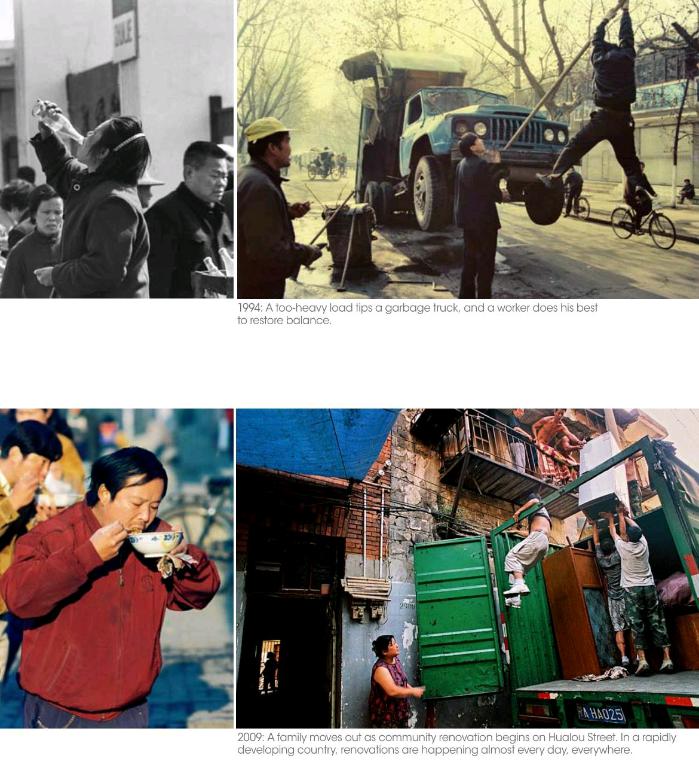An Endless Project
2014-11-24byXuanKang
by+Xuan+Kang
Without photos, its difficult to track a citys evolution amidst Chinas skyrocketing development. Luckily, many Chinese photographers have been documenting cities and urbanites for years. In this issue, we present a series of images by Wuhan-based photographer Zhu Changjiang of his beloved city Wuhan, located in central China and blessed with a time-honored and impressive history.
In late 1980s and early 1990s, Zhu began to shoot Wuhans everyday life. His work depicts Wuhan and its residents during the countrys rapid development: People devour breakfast at food stands in the open air, a vendor twirls a hula hoop around his waist to promote the toy which was very popular in China in 1990s, and an old man takes his dog to swim in the Yangtze River. Recording ordinary peoples lives, Zhus images are flavored by the times and showcase the personalities of Wuhan and its residents. Like its geographic location and climate, Wuhan and its residents possess features of both southern and northern China, unrestrained and refined at the same time.
It is fair to say that during Chinas rapid development, modernization quickly obscured the traditional faces of almost every major and medium-sized city in the country. These cities respective personalities are also undergoing subtle changes during the process. Construction not only changes a citys face and personality, but also erases and rebuilds peoples memories about it.
City residents are also experiencing slow but distinctive changes during development. The soul of a city, ordinary residents are not preserved in epics and history books, but live on in everyday urban customs. Everyday life exhibits a citys unique“folk” culture, which makes it stand out amongst others.
Renowned American photojournalist W. Eugene Smith (1918-1978) believed that documenting a city was an endless project. During Zhus efforts to document Wuhan, he has been focusing on its society and people, as well as the changes of peoples living environment. Employing unadorned composition with his own features, Zhus work has been recording invisible faces and their emotional tales in an era of reform.




